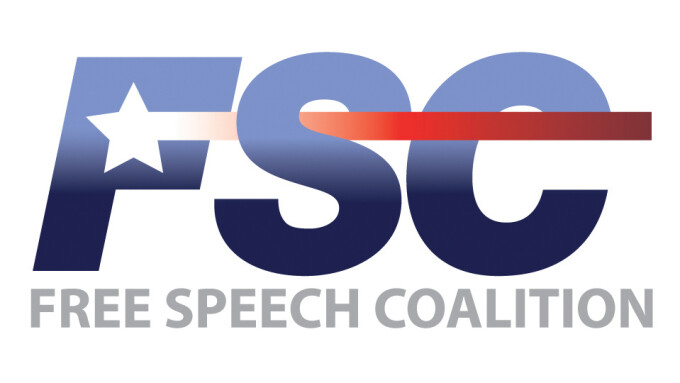CLEVELAND — A federal judge’s memorandum issued this week over federal recordkeeping laws 18 U.S.C. §§ 2257 and 2257A means that Free Speech Coalition and Justice Department attorneys must formulate a judgment that conforms to decisions the court has already made, according to attorney J. Michael Murray, one of two lawyers representing the FSC and co-plaintiffs.
On Monday, U.S. District Judge Michael Baylson issued a 60-page memorandum in the FSC’s long-running lawsuit against the Justice Department, ordering both sides to propose a decree within two weeks to settle First Amendment challenges to the statutes.
Baylson said in his 60-page memorandum said that “the parties may conclude that coming to a joint agreement, even though neither side is getting everything it asks for, is superior to further appeals and possible further remands.”
Murray spoke Wednesday at a FSC press conference to discuss what’s ahead in the case that pits the adult industry trade group and the American Society of Media Photographers against the Justice Department over the statutes.
“What the court has ordered us to do is to formulate a judgment that corresponds to what the court determined,” Murray said. “And, so, it isn't as if the parties are supposed to negotiate something different from what the judge has decided. Whether we'll be able to agree on the language of that judgment is certainly unclear at this juncture.
“But if we are unable to agree, then each side will submit a proposed judgment entry in the view each side accurately portrays what the judge's ruling represents,” he said. “Both the government and the plaintiffs are confined to what the judge ruled in his opinion. We can't deviate from it.
“We have to accurately reflect what he wrote in his opinion into this proposed judgment. And, yes, even that can lead to disagreements among parties in the ordinary course of litigation as to what precise language should be used. But, again, it's all going to have to reflect what the judge ruled.”
Baylson “rendered a decision on numerous issues that found substantial portions of 2257 are unconstitutional as applied,” remarked Murray, who is litigating the case along with attorney Lorraine Baumgardner. Both litigators practice at Cleveland-based Berkman, Gordon, Murray & DeVan
Last year the FSC won a Fourth Amendment challenge over unreasonable searches and seizures at producers’ businesses at the 3rd U.S. Circuit Court of Appeals. As a result, the court invalidated a portion of §2257(c) in the case, which was originally filed in 2009.
Now, as the case seemingly is at its climax, the FSC is intent on a permanent injunction enjoining the statutes’ enforcement because they are overly broad and unconstitutional relative to the First Amendment.
Murray emphasized at Wednesday’s press conference that the adult entertainment industry has acted responsibly through the years by rooting out child pornography, but that the 2257 regulations, as currently written, have been too burdensome for producers.
“These laws were designed to burden an industry that had always reported child pornography and that had always made good-faith efforts to comply with their longstanding beliefs that IDs would be checked and performers would have to be adults in order to appear in the erotic films and videos that were being produced,” Murray said.
“And, so, the First Amendment rights that remain at stake in this case are of great importance,” he said. “It actually goes well beyond sexually explicit material.
“It's always been the case that the adult industry has been at the forefront of litigating these cases and securing First Amendment rights not just for the adult industry but through the American people and all the citizens of the U.S.”
Murray noted that whatever determination is finally made, one thing is certain — the adult entertainment industry will always make certain underage individuals won’t be involved in the production of erotic material.
“The industry itself has always checked IDs and verified that the performers are over the age of 18 and that they are adults,” he said. “That will continue regardless of the outcome of this litigation.
“I can confidently predict that there never will be a time during which the adult industry will discontinue its longstanding practice that even predated the enactment of 2257 checking and verifying identification photo identification to ensure that every performer that is depicted in their media is an adult.”
Murray, in conclusion at the press conference, said that FSC and its co-plaintiffs in the case have “enormously made important contributions” to free speech and defenders of the First Amendment.
“It has been an absolute privilege to represent the FSC as well as the other players in this endeavor, and the support that we've had from the industry has been terrific and the importance of the issues cannot be overstated,” Murray said.
“I mean these issues go to the very heart of the First Amendment,” he said. “And there is absolutely no reason why these burdensome onerous statutory regulations and provisions should be imposed upon the citizens who are members of the FSC and who are absolutely, totally and always opposed to child pornography."








